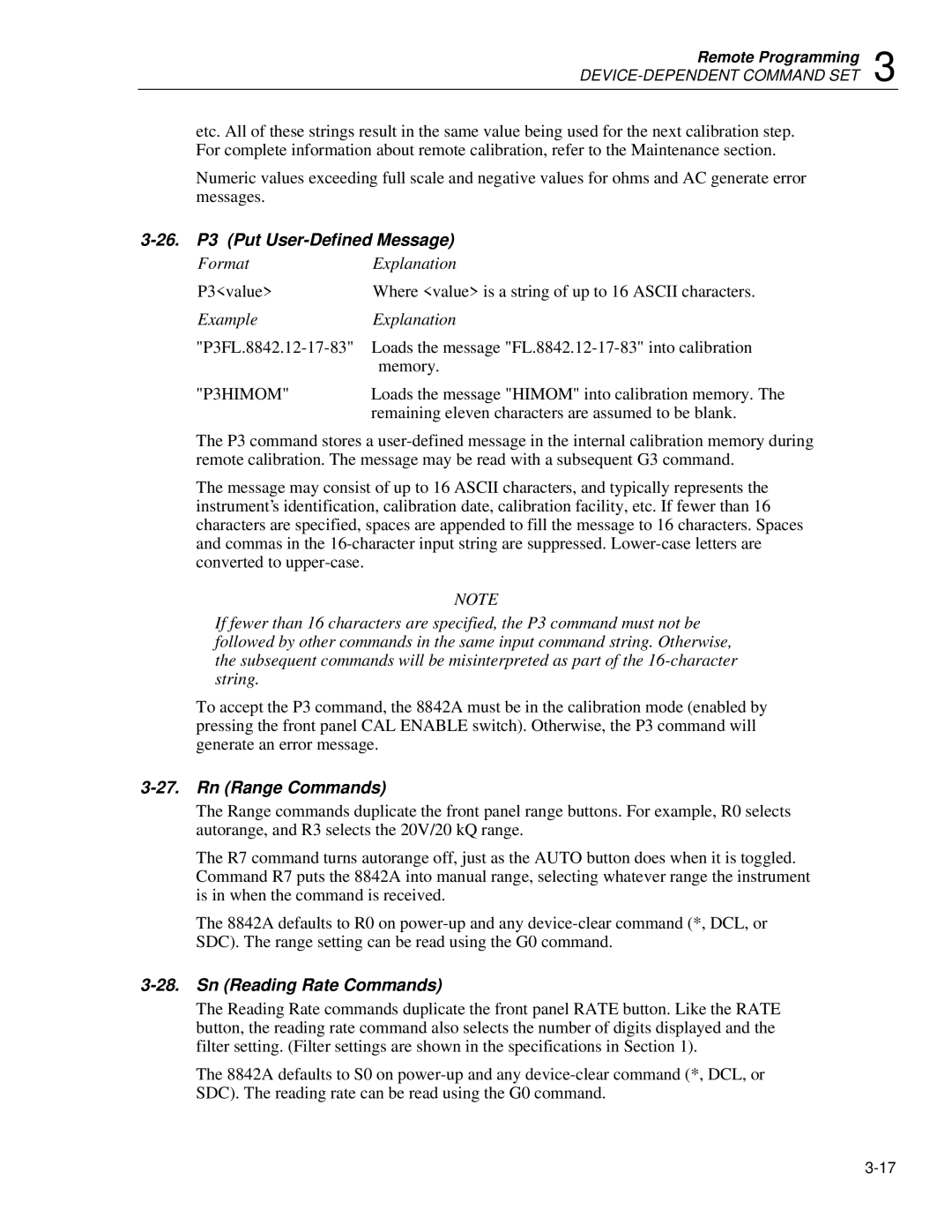Remote Programming 3
DEVICE-DEPENDENT COMMAND SET
etc. All of these strings result in the same value being used for the next calibration step. For complete information about remote calibration, refer to the Maintenance section.
Numeric values exceeding full scale and negative values for ohms and AC generate error messages.
3-26. P3 (Put User-Defined Message)
FormatExplanation
P3<value> | Where <value> is a string of up to 16 ASCII characters. |
Example | Explanation |
| memory. |
"P3HIMOM" | Loads the message "HIMOM" into calibration memory. The |
| remaining eleven characters are assumed to be blank. |
The P3 command stores a
The message may consist of up to 16 ASCII characters, and typically represents the instrument’s identification, calibration date, calibration facility, etc. If fewer than 16 characters are specified, spaces are appended to fill the message to 16 characters. Spaces and commas in the
NOTE
If fewer than 16 characters are specified, the P3 command must not be followed by other commands in the same input command string. Otherwise, the subsequent commands will be misinterpreted as part of the
To accept the P3 command, the 8842A must be in the calibration mode (enabled by pressing the front panel CAL ENABLE switch). Otherwise, the P3 command will generate an error message.
3-27. Rn (Range Commands)
The Range commands duplicate the front panel range buttons. For example, R0 selects autorange, and R3 selects the 20V/20 kQ range.
The R7 command turns autorange off, just as the AUTO button does when it is toggled. Command R7 puts the 8842A into manual range, selecting whatever range the instrument is in when the command is received.
The 8842A defaults to R0 on
3-28. Sn (Reading Rate Commands)
The Reading Rate commands duplicate the front panel RATE button. Like the RATE button, the reading rate command also selects the number of digits displayed and the filter setting. (Filter settings are shown in the specifications in Section 1).
The 8842A defaults to S0 on
